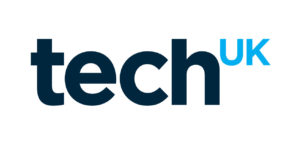As the lead on TechUK’s Health and Social Care team, Ben Moody has a wide angle view of how technology is shaping the healthcare sector.
Ben spoke to Internet of Me as part of its Patient Centricity project, looking at how empowering individuals with access and control over their health data can improve services and outcomes.
Ben represents around 380 companies working in the health and social care space, ranging from one-man startups to large multinationals, which represent more than a third of TechUK’s 950 members.
The opportunities are huge, not least because healthcare hasn’t seen the levels of technological disruption of other sectors.
“Our members are trying to digitise health and social care and bring them up to the level of other industries,” he says. “I think there is general agreement and recognition that healthcare is a laggard industry. We still largely book appointments over the phone, letters are often the primary mode of communication between doctor and patient køb viagra.
“You hear people talking about a patient emailing their doctor as an innovative use of technology whereas in other industries that has been the standard mode of communication for over a decade.
So, while at TechUK we do a lot of future-gazing and thinking about things like AI and blockchain, in healthcare we need to get the basics right first.”
And it is the seemingly simple things that can make a huge difference. As more patients are offered online access to their medical records, there is also more that can be done to allow them to arrange appointments and manage ongoing medical conditions.
“Three out of five interactions are to do with booking, cancelling or moving appointments,” says Ben. “There are statistics that show that while on the GP side 90 per cent of practices let you do those things online, more than 90 per cent of people don’t do that.
“So, our brief is to look at what the barriers are, to digitise interactions between patients and healthcare services, and then also to look at where technology can mean that people don’t have to interact with healthcare services at all. Simple tasks can be done without the time and resource of very highly qualified and expensive professionals, whether that’s a GP, a consultant or whatever.”
Putting patients in control
Ben cites as an example the many digital services that help diabetics monitor and manage their condition.
“Diabetes is considered to be the condition that can benefit the most from digitisation. Part of the reason is that most of it is about self-management. There is very little a doctor can do. You have Type 1 diabetes for life and you have a difficult job managing it. It’s also difficult for parents managing it for their children. The burden on patients is huge. A lot of it involves calculations which can be done through technology rather than in someone’s head.
“Traditional testing involves pricking your finger and squeezing blood onto a test strip. There’s been a huge technological improvement in glucose testing involving wearable devices. So, you can wear a continuous monitor that gives you a result without having to do anything and it can tell you if you need to take action. It’s a massive improvement.
“There is also a lot to be improved about how those people interact with the system. It’s a condition where you see a whole range of professionals within a multi-disciplinary team – diabetics have to have their feet checked every year, their eyes tested, they see their GP, nurses, consultants. For the individual to coordinate with all of those different people is very difficult so ideally you would have an electronic care plan that lists when the appointments are and when you need to see certain people and also gives you the results from those appointments.
“The ability for citizens to line up those appointments on a single day is verging on impossible. It has a huge cost to UK plc as people have to take days off work, plus children have to take time off school.”
However compelling, the idea of such a digitised care plan, Ben says, is not a reality for most people.
“There is a patchy picture around the country. There are people – both citizens and healthcare professionals – who are very passionate about pushing the digitisation agenda. They are doing it almost in spite of the system rather than because of it.”
Data as driver of better health
Access to data can give individuals a better understanding of their own health, and Ben bridles at the critics who say this merely panders to the ‘worried well’.
“Thinking about and taking control of your own healthcare isn’t worrying in any kind of unnecessary way – it’s a very positive step to extending your healthy life. If you find out, for example, that you have a genetic predisposition to high cholesterol you might make a very small adjustment to your diet that could extend your life by years.”
“I would never see it as a negative thing that person is taking control or aggregating their own data. I do see it is slightly problematic that in a taxpayer-funded system it’s the individual that’s relied on to do that.
“The health and social care system in this country is so broken up and disparate that relying on individuals to put in an individual request to every practice they’ve ever been to would be quite an onerous task.
“You also have to remember that the heaviest users of the NHS are over the age of 75 and so the problem is compounded if you rely on them to have access to electronic tools and to remember all of the different healthcare bodies that they have spoken to in order to make those requests for information. But I think it can work if you make it simple and take into account some groups that might not be tech savvy.”
More on Patient Centricity: IoM talks to Yoti about verified identity
The difficulty, then, is working out where the driving force for such change will come from. The government and bodies such as NHS Digital are doing what they can and there is a thriving private sector health tech scene. As the founder and former boss of medical record IT giant EMIS, Davis Stables, told Internet of Me recently, many of the problems are to do with the vast, sprawling nature of the NHS.
Ben says: “The NHS is forcing interoperability which is good thing – it is written into NHS England standard contract. The difficulty is the structure of the NHS. The decision-making that happens at the local level – hospital trusts or GPs, for example – are like stand-alone sovereign bodies, given guidance and standards and best practice examples by the centre but ultimately they make their own decisions.”
“So, I think the push from the centre is there but the difficulty at local level is that there are so many other pressures. Ultimately I do think it does come down to funding.
“There needs to be a commitment to make this work. I think too many people were burned by the National Programme for IT and worry that they couldn’t possibly do something like that again.”
A prescription for innovation
This is where the private sector can accelerate change. It’s not about ‘privatising’ of NHS services, but rather capitalising on fast-moving innovation that is focused on the consumer – in this case, the patient. Commercial success in a competitive market means products such as apps must be useful and simple to use in order to survive. Such products and services could also make life easier for under-pressure GPs.
“Things that you previously needed to see a GP for can now be done by mobile phone,” says Ben. “I think that reducing demand on constrained NHS services can only be a good thing as long is the right safeguards are in place. There are apps like Your.MD which can give you a good idea of whether or not you need to see a GP. Of course, no one wants to deter someone from seeing a doctor when they genuinely need to, but GPs are at the sharp end so anything that can make their lives easier will be welcome.”
It will be the convenience such developments offer patients that will drive engagement rather than an innate desire for the average person to get their data, he adds.
“I think you’ll always get a few very active citizens who have requested their own health data in the past but, generally speaking, unless something is well designed, works effectively and is as easy as any of the popular well-known consumer apps, people just won’t use it.
“There is a big opening for innovative companies especially at the design space. The data exists, the demand exists and the legal framework exists for it to happen. It just needs a simpler way of aggregating everything rather than having to make individual requests to individual NHS bodies.”
We couldn’t agree more.


